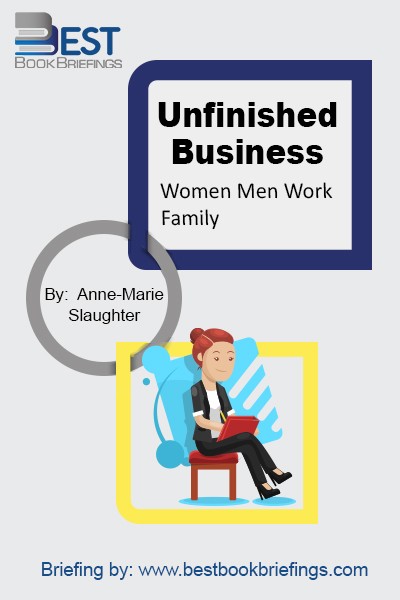Unfinished Business
Women Men Work Family
Editorial Review
Anne-Marie Slaughter shares her vision for what true equality between men and women really means, and how we can get there. She uncovers the missing piece of the puzzle, presenting a new focus that can reunite the women’s movement and provide a common banner under which both men and women can advance and thrive. With moving personal stories, individual action plans, and a broad outline for change, Anne-Marie Slaughter reveals a future in which all of us can finally finish the business of equality for women and men, work and family.



